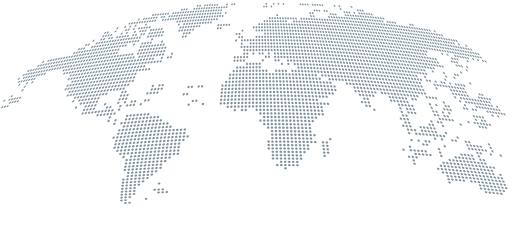Choosing the right database for logistics and supply chain apps
When it comes to making decisions regarding the design of a logistics and supply chain application, few elements are more essential than deciding on which databases should be utilized. Whether you’re seeking out infinitely scalable storage or an architecture that facilitates quick development and testing, the right database selection can significantly aid in extracting maximum value from your app. At Transmate, we understand the importance of having reliable backend systems for our clients and thus rely on BigQuery for archive purposes; MongoDB for rapid development & testing; and PostgreSQL for GeoDB needs. In this blog post, we'll unpack why these technologies are so important as well as what key considerations you should keep in mind when selecting a database platform for your next project. Read on to learn more!

DB choice in logistics and supply chain apps
When it comes to making decisions regarding the design of a logistics and supply chain application, few elements are more essential than deciding on which databases should be utilized. Whether you’re seeking out infinitely scalable storage or an architecture that facilitates quick development and testing, the right database selection can significantly aid in extracting maximum value from your app. At Transmate, we understand the importance of having reliable backend systems for our clients and thus rely on BigQuery for archive purposes; MongoDB for rapid development & testing; Redis for caching/real time and PostgreSQL for GeoDB needs. In this post, we'll unpack why these technologies are so important as well as what key considerations you should keep in mind when selecting a database platform for your next project
What is Database Choice and Why Does it Matter in Logistics and Supply Chain Apps
Choosing the right database system can significantly impact the performance and efficiency of logistics and supply chain applications. Database choice refers to the selection of a specific database management system to store and organize data. It's crucial to evaluate different databases carefully and choose the one that best suits your business needs. Factors such as data volume, speed, and complexity play a vital role in determining the appropriate database system. Implementing the right database can speed up data processing, increase productivity, and lead to better decision-making. In today's competitive marketplace, having an efficient logistics and supply chain app is critical for long-term success, and choosing the right database is equally important to achieve optimal results.
BigQuery for Archive Storage - Infinite Capacity and Big Data Query Options
Are you looking for a storage solution that can handle big data with ease? Look no further than BigQuery for Archive Storage. This platform offers infinite capacity, ensuring that you never have to worry about running out of space. In addition, BigQuery boasts powerful query options that allow you to analyze your data in detail. With this service, you can extract insights from large data sets quickly and efficiently. Say goodbye to the limitations of traditional storage solutions and step into the world of BigQuery for Archive Storage.
MongoDB for App Development - Quicker Development and Testing
MongoDB has become increasingly popular for app development due to its ability to make development and testing much quicker. With its flexible data model and powerful query language, developers can easily store and retrieve data without having to worry about complex table structures or joins. This allows for faster development and testing, as code changes can quickly be made without having to adjust entire database schemas. Additionally, MongoDB's scalability ensures that as app usage grows, the database can easily handle the increased workload without slowing down the app's performance. For developers looking to streamline their app development process, MongoDB is definitely worth considering.
PostgreSQL for GeoDB - Spatial Data Management
PostgreSQL for GeoDB is a good choice to manage spatial data. Equipped with a set of tools and features, PostgreSQL for GeoDB empowers businesses and organizations of all sizes to make informed decisions based on the data that surrounds them. Whether you're looking to optimize logistics, improve customer experience, or better understand environmental patterns, this technology has got you covered.
Redis for Real-Time Insights and caching
As the world becomes more data-driven, the demand for real-time insights is more critical than ever. That's where Redis an in-memory databases come into play. They're engineered to deliver fast transaction processing and real-time data analytics by storing data in memory instead of on a hard disk drive. This type of database technology is crucial for applications like real-time supply chain data. Additionally, in-memory databases can also be used as caching mechanisms to speed up access to data that is frequently accessed. With the ability to provide near-instantaneous insights, it's no wonder that in-memory databases continue to gain popularity in the modern tech landscape. At Transmate we use Redis for this purpose.
In conclusion, Database Choice matters in Logistics and Supply Chain Apps because it can help complete the project faster, more efficiently, and more securely. Transmate moves ‘big’ data at scale with Bigquery for infinite storage capacity and big data query options, Mongodb for a quicker development and testing, PostgreSQL as our geodb with spatial data management, in-memory databases for real-time insights , and NoSQL databases for scalability. Choosing the right database can be critical to optimizing your supply chain apps. We hope this article was informative on how to make your ideal supply chain app with proper database choices. Most importantly, we want to make sure you get the best product possible without sacrificing budget or resources. If you have any questions or do you need any help with your supply chain app, contact us!
